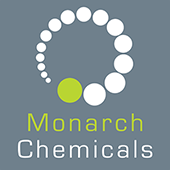What is Trisodium Citrate? Trisodium Citrate, also referred to as Sodium Citrate, Trisodium Salt or food additive E331, is the tribasic salt of citric acid. It appears as a white crystalline powder or granular crystals and, given it is a salt, possesses a salty / saline taste with no real detectable odour. It has the CAS number 6132-04-3 and formula Na3C6H5O7. Trisodium citrate is water-soluble, non-toxic and fully biodegradable.
What is Trisodium Citrate?

12 Jul 2022
With a broad range of uses and applications this month we take a closer look at Trisodium Citrate
Trisodium Citrate Uses
Trisodium citrate is used in similar applications to citric acid. These uses include as an acidity regulator in food and drink, as a sequestering agent to prevent limescale inference with soaps and detergents and as an emulsifying agent to aid chemical mixing processes where two separate elements are incapable of mixing (for example oil and water) and helps to keep these mixtures stable once formulated.
Trisodium Citrate in Food
Trisodium Citrate is a food additive with the E number E331. It is used in a variety of processed food and drink primarily as a flavour enhancer and a preservative. As an emulsifying agent it is also used in cheesemaking to allow cheese to melt without the separation of oils and fats.
Trisodium citrate in food buffers pH levels to help regulate acidity in a variety of foods to balance taste and is also able to impart a tart / sour flavour in a wide variety of drink products.
Difference between Trisodium Citrate and Sodium Citrate
In terms of the product there is not really a difference between the two, rather just how it is referred to. Trisodium Citrate is often simply called sodium citrate as sodium citrate is indeed the trisodium salt of citric acid. However, somewhat confusingly, Sodium Citrate could potentially refer to any of the three sodium salts of citric acid – Monosodium Citrate, Disodium Citrate and Trisodium Citrate.
What is the difference between Trisodium Citrate Anhydrous and Trisodium Citrate Dihydrate?
The two terms anhydrous and dihydrate are used to describe either the presence or the absence of water molecules in a chemical compound. Anhydrous means a compound with no water molecules and dihydrate means a chemical compound with water – more precisely – two water molecules per formula unit of the compound. In practical terms this means dihydrate compounds do not absorb water very well whereas anhydrous compounds will.
To find out more about Trisodium citrate including availability from Monarch Chemicals or to request a quote, SDS or product specification please head over to our Trisodium Citrate product page.
Related Articles
 |
|


